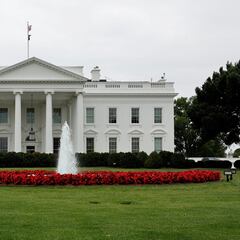When does the UK smoking ban begin and who does it affect?
A new bill in the British parliament is seeking to outlaw cigarette purchases for people born after 2009.

The House of Commons of United Kingdom has approved a new law that will prohibit anyone born after 2009 from being able to buy. The British Prime Minister, Rishi Sunak, has considered this project as one of the most important of his mandate, which was easily approved thanks to the support of the opposition Labour party.
The Prime Minister’s party revolted against him with 57 Tories voting against the plan and 106 abstaining. Just 51% of the party voted for the plans.
Conservative MP Adam Afriyie, who accepted £19,000 worth of all-expenses paid trips to speak at Tobacco industry conferences in the past two years, says that smoking bans "don't work" and are "ridiculous". pic.twitter.com/HrhZ5epK7b
— Adam Bienkov (@AdamBienkov) April 16, 2024
Wes Streeting, the Labour shadow health secretary, said, “Of all the policies the Conservatives have adopted from the Labour party in the past few years, nothing shows our dominance in the battle of ideas more than this latest capitulation.”
Those who have opposed the measure, like former Tory PM Liz Truss, have argued that it “restricts the freedom” of individuals to decide about themselves.
What other measures are included in the bill?
The measure will come into force when the young people, now 15 years old, turn 18. The legal age to buy tobacco will be increased by one year every year, so the sale of tobacco to new generations is basically being prohibited.
The bill also includes measures to make vapes less attractive to children, such as restrictions on flavors and packaging. It also gives new powers to trading standards officers to issue fines to shops selling tobacco or vaping devices to minors.
"I haven't done the maths, but 46-year-olds will be standing outside the newsagents asking the 47-year-olds, ’can you buy me a Bensons 20 pack, Mr?’"
— LBC (@LBC) April 17, 2024
@mrjamesob calls Rishi Sunak’s smoking ban both ‘bonkers and brilliant', noting it’s the PM’s ‘only original idea in two years’. pic.twitter.com/4pXQh1S1a2
Related stories
Smoking costs the British economy $21 billion a year which, according to the authorities, “far exceeds the annual income that the Treasury receives from taxes on tobacco products”. This is due to the significant health issues associated with smoking.
As reported by El Confidencial, this is equivalent to the annual salaries of more than 500,000 nurses, 390,000 family doctors, 400,000 police officers or 400,000 million GP appointments.

